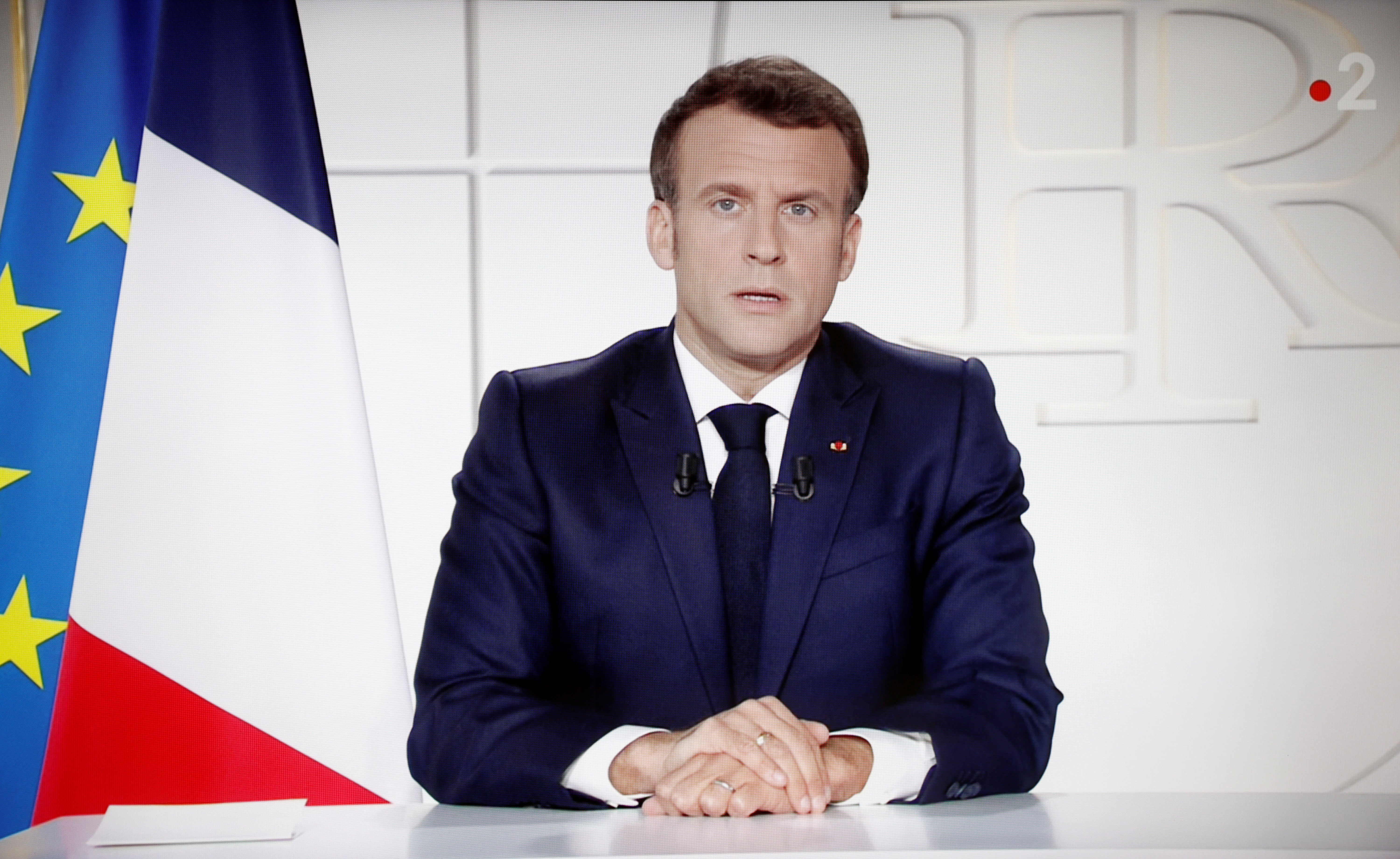
The European Union’s former Brexit negotiator Michel Barnier has reignited talk of “Frexit” with comments interpreted by Eurosceptics as a warning that France could still follow suit in exiting the bloc.
As incumbent president Emmanuel Macron trails in the polls to Marine Le Pen – who is no friend to the EU – ahead of next year’s elections, Mr Barnier said: “We could draw some lessons from Brexit for ourselves. It’s now too late for the UK but not for us.”
Fresh from the coalface of negotiations over a post-Brexit trade deal, Mr Barnier insisted last month that he was ready to run for president in 2022, and appears to be staking a claim to be the superior pro-European candidate on the centre-right – having announced the creation of a “Patriot and European” faction within the struggling Les Républicains party in February , as it seeks a candidate capable of challenging within the current two-horse race led by Mr Macron and Ms Le Pen.
Speaking at a conference on Brexit and the future of the EU in Le Touquet, Mr Barnier warned that lessons must be learnt from factors that led to the 52-48 vote across the Channel.
“We can find, not just in the UK, but here in France, in the northern and eastern regions ... citizens who want to leave the EU,” he is reported to have told delegates.
“They say the EU did not respond to legitimate desires of citizens, there is social unrest or anger, one might say, because there’s no protection of external borders, some people say, immigration flows are impacting us,” he said, adding: “Europe is also often criticised for its red tape and complexity.”
But while dissatisfactions with the European project remain on both sides of the political spectrum in France, most serious talk of departing the union – once significant enough for Mr Macron to concede in 2018 that, if faced with a similar binary choice to the one posed in the UK in 2016, his country’s electorate may well have given the same answer – has hushed in recent years.
Ms Le Pen, who once dubbed herself “Madame Frexit”, notably ceased campaigning for this outcome by the time of the 2017 presidential election, and is instead advocating the creation of a “Europe of nations” – a close namesake of the fiercely Eurosceptic and anti-migrant coalition of far-right politicians she helped to form in the European Parliament in 2015.
Under this guise, she claims to be seeking to “radically modify” the bloc – scrapping the “undemocratic” European Commission and implementing protectionist policies she says were in part inspired by former US president Donald Trump.
This apparent decline in the value of Frexit as a political currency has been attributed to the woes brought by Brexit.
As Westminster toiled in the grinding tedium of attempts to hash out a suitable withdrawal agreement in 2019, Le Monde’s editorial director Sylvie Kauffmann suggested that “Brexit had made Frexit impossible”, and so politically toxic that it had taken Ms Le Pen a year “to recover” from a debate in which Mr Macron “crushed [her] by proving how incoherent her idea of a French paradise outside the eurozone actually was”.
But despite Ms Le Pen’s forced public reinvention as a reformist, how deep this transformation goes is still unclear. Suggesting in February that “maybe Great Britain can rejoin us once we’ve built something where each nation conserves their freedom”, she went on to describe the bloc as a “prison”, whether member states can choose to leave or not.
While the extent of Brexit’s legacy as a warning to Eurosceptic nations remains to be seen – with the long-term impacts upon trade, finance and other sectors still to fully come to light – the UK’s separation from the bloc, the end of the transition period and the very publicly grinding negotiations at the start of this year have given Eurosceptics many fresh targets.
One such target is the coronavirus vaccine rollout, with the leader of fringe political group Generation Frexit, Charles-Henri Gallois, claiming this week: “If there is one glaring example of how useless and harmful the European Union is, it is the handling of the Covid-19 crisis. Across the English Channel, it is rightly said that the vaccine episode is the best possible advertisement for Brexit.”
But although the pandemic appears to have driven vast changes in political tastes, the impact upon French Euroscepticism is less clear, with polling in March by Kekst CNC suggesting that French voters were more likely to be critical of their own government’s handling of the vaccine rollout than the EU’s.
Furthermore, two OpinionWay surveys carried out in March and October 2020 found that, in terms of what respondents believed the EU’s priorities should be in the coming decade, granting member states more sovereignty had fallen by four points to fifth place – behind concerns about industry and social welfare and a greater desire for protectionist policies.
However, it appears that deep-rooted Euroscepticism may be harder to shift, with polling by Redfield and Winton last August suggesting that, in the event that the UK economy is in a good state five years after Brexit, about 36 per cent of French people would vote to leave the EU – a rise of 3 per cent on 2016 polling by the Pew Research Centre.
Despite this sentiment appearing to remain a minority view, Mr Barnier was keen to remind Europhiles to take nothing for granted.
“I’ve been managing for four-and-a-half a years a UK event that was improbable, improbable even in the eyes of Brexiteers, and yet it happened, for the same reasons we find in France today — especially in the poorest regions that felt abandoned and unprotected,” he told the Financial Times.
Citing the threat of a historic Le Pen upset, he added: “We are in a world where improbable events happen.”

Join our commenting forum
Join thought-provoking conversations, follow other Independent readers and see their replies
Comments